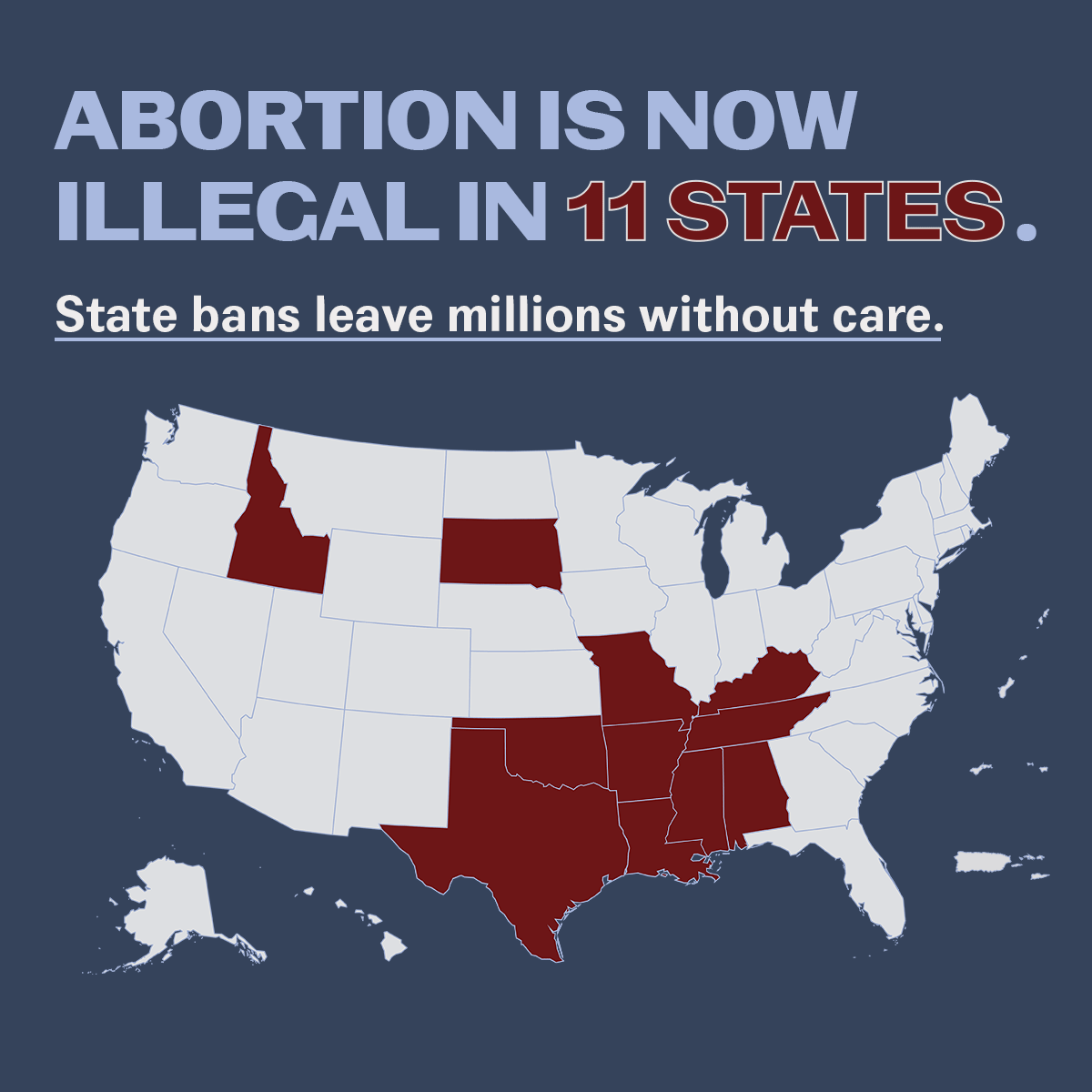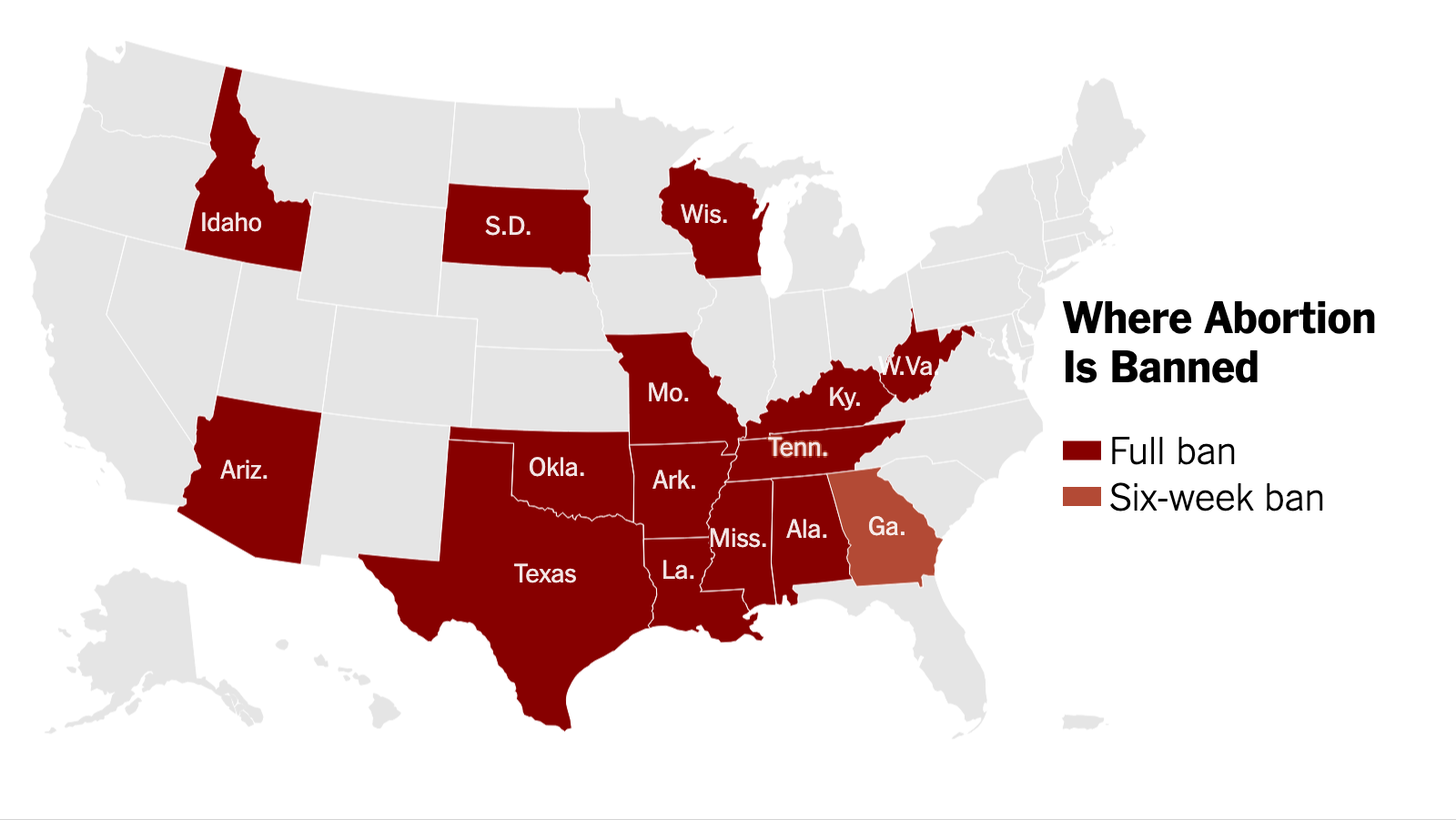Is IVF Illegal in Some States? Your Guide to Understanding the Facts
In vitro fertilization (IVF) has been a game-changer for millions of families, offering hope to those struggling to conceive. But lately, there’s been a swirl of confusion about its legal status in the United States. You might have heard whispers—or even loud debates—about whether IVF is illegal in some states. Maybe you’re wondering if your dream of starting a family could hit a legal roadblock depending on where you live. Don’t worry; I’ve got you covered. This article dives deep into the truth about IVF laws across the U.S., unpacking the myths, the realities, and what it all means for you.
IVF isn’t just a medical procedure—it’s a lifeline for many. Yet, with recent court rulings and political chatter, people are asking big questions. Could some states really ban it? What’s driving these concerns? And how can you navigate this if you’re thinking about IVF? Let’s break it all down, step by step, with the latest info, real stories, and practical tips to help you feel confident and informed.
What Is IVF, and Why Does It Matter?
IVF stands for in vitro fertilization, a process where doctors combine an egg and sperm outside the body, then place the resulting embryo into the uterus. It’s been around since 1978, when the first “test-tube baby,” Louise Brown, was born in England. Since then, it’s helped over 8 million babies come into the world, according to the International Committee for Monitoring Assisted Reproductive Technologies.
For couples facing infertility—about 1 in 8 in the U.S., per the CDC—IVF can feel like a miracle. It’s also a go-to for single parents, same-sex couples, and people preserving fertility before treatments like cancer therapy. But here’s the thing: IVF isn’t cheap or simple. A single cycle can cost $12,000 to $20,000, and it often takes multiple tries. That’s why access—and legality—matter so much.
So, is IVF illegal anywhere in the U.S.? The short answer: No, it’s legal in all 50 states as of April 2025. But the longer answer is more complicated, thanks to shifting laws, court decisions, and debates over embryos. Let’s explore what’s really going on.
The Legal Landscape: Is IVF Actually at Risk?
You might’ve seen headlines screaming about IVF bans, especially after the Alabama Supreme Court made waves in February 2024. The court ruled that frozen embryos created through IVF are “children” under the state’s Wrongful Death of a Minor Act. This came after a lawsuit involving embryos accidentally destroyed at a fertility clinic. Clinics panicked, pausing IVF services out of fear they could face legal trouble if embryos were damaged or discarded.
The fallout was instant. Families in Alabama were left in limbo, unsure if they could move forward with treatments. But here’s what happened next: lawmakers stepped in fast. By March 2024, Alabama passed a law protecting IVF providers and patients from lawsuits over embryo handling. Clinics reopened, and IVF stayed legal. Crisis averted—for now.
This wasn’t an isolated incident, though. It sparked a nationwide conversation. Could other states follow suit? Could “fetal personhood” laws—ideas that grant embryos the same rights as born people—threaten IVF elsewhere? Posts on X have been buzzing with worry, with some users claiming “IVF is under attack” and others arguing it’s “safe for now.” The truth lies somewhere in between.
The Big Picture Across the U.S.
Right now, IVF is legal everywhere in the U.S. No state has outright banned it. But the Alabama scare showed how fragile that status can feel. Here’s a quick rundown:
- States with Protective Laws: After Alabama’s ruling, states like Texas and Florida saw lawmakers propose bills to shield IVF. These haven’t passed yet, but the intent is clear: keep IVF accessible.
- States with Personhood Debates: Places like Missouri and Louisiana have laws or proposals defining life at conception. These don’t ban IVF directly, but they raise questions about embryo disposal or storage—common parts of the IVF process.
- States with No Action: Most states haven’t touched IVF laws recently, leaving it regulated by medical boards and federal guidelines, not state bans.
So, while IVF isn’t illegal, its future hinges on how courts and lawmakers interpret embryo rights. That’s where the tension lies.
Why People Think IVF Might Be Illegal
The confusion isn’t random. It’s tied to bigger issues—like abortion laws and religious beliefs—that spill over into IVF territory. Let’s unpack the main culprits behind the uncertainty.
The Abortion Connection
Since the U.S. Supreme Court overturned Roe v. Wade in 2022, abortion laws have tightened in many states. Some of these laws define life as starting at fertilization, which sounds a lot like what happens in IVF. If an embryo is legally a person, what happens when IVF creates extras that aren’t used? In a typical cycle, doctors might fertilize 10 eggs, but only 1 or 2 get implanted. The rest are frozen, donated, or discarded. Could that be seen as “ending a life” in states with strict fetal protection laws?
Experts like Greer Donley, a law professor at the University of Pittsburgh, say IVF isn’t the main target of anti-abortion groups. It’s more like “collateral damage” in their push for fetal personhood. Still, the overlap keeps people on edge.
Religious and Ethical Debates
Some religious groups, like certain evangelical Christians, oppose IVF because it involves creating embryos that might not survive. The Catholic Church, for instance, has long criticized IVF, arguing it separates procreation from the natural act of conception. These views don’t make IVF illegal, but they fuel political pressure in conservative states.
Misinformation Online
Social media doesn’t help. Posts on X often exaggerate, with claims like “IVF is banned in red states” or “Democrats are saving IVF from Republicans.” Neither is fully true. IVF’s legality isn’t split by party lines—it’s more about specific court rulings and local politics. But the noise makes it hard to separate fact from fear.

Interactive Quiz: How Much Do You Know About IVF Laws?
Let’s test your knowledge—and clear up some myths! Answer these quick questions (jot down your answers or just think them over):
- True or False: IVF is currently illegal in Alabama.
- What year did the U.S. Supreme Court overturn Roe v. Wade?
- A) 2020
- B) 2022
- C) 2024
- Which state’s supreme court ruled embryos are “children” in 2024?
- A) Texas
- B) Alabama
- C) California
Answers: 1. False (it’s legal with protections as of 2024). 2. B (2022). 3. B (Alabama). How’d you do? If you’re surprised by any of these, you’re not alone—IVF laws are tricky to follow!
What’s Happening in 2025: Trends and Updates
It’s April 2025, and IVF is still a hot topic. Google Trends shows searches for “is IVF illegal” spiking every time a new court case or bill pops up. On X, users are split—some cheer state protections, while others warn of “slippery slopes” toward restrictions. Here’s what’s new:
- Federal Push: Senators like Tammy Duckworth (D-IL) are fighting for a national law to protect IVF access. The Right to Build Families Act, introduced in 2024, hasn’t passed yet, but it’s gaining traction.
- State-Level Moves: Georgia and Iowa are drafting IVF-friendly laws, inspired by Alabama’s fix. Meanwhile, Missouri’s personhood language is under scrutiny for its IVF implications.
- Public Opinion: A 2023 Pew Research survey found 70% of Americans support IVF access. That’s a big deal—it means most people, across political lines, want it to stay legal.
The vibe? IVF isn’t going anywhere soon, but it’s not untouchable either. Legal battles over embryos could still shake things up.
The Hidden Costs of Legal Uncertainty
Even if IVF stays legal, the fear of bans has real effects. Clinics in states with personhood debates are getting cautious. Some limit how many eggs they fertilize to avoid extra embryos. Others hike prices to cover legal risks. For patients, this means:
- Higher Costs: A cycle that’s already $15,000 could climb if clinics add “legal buffer” fees.
- Fewer Options: If doctors fertilize fewer eggs, your odds of success might drop, forcing more cycles.
- Emotional Toll: Imagine pausing your IVF plans because your state’s laws feel shaky. That stress is real.
Take Sarah, a 34-year-old from Missouri. She told me her clinic warned her about “possible future limits” on embryo creation. “It’s like playing a guessing game with my family’s future,” she said. Stories like hers show how legal gray areas hit home.

Three Things You Didn’t Know About IVF Laws
Most articles skim the surface of IVF legality. Here are three angles you won’t find everywhere—fresh insights to deepen your understanding.
1. Embryo Adoption Is a Quiet Workaround
In states with strict embryo rules, some couples turn to “embryo adoption.” It’s when unused IVF embryos are donated to another family, treated like an adoption process. Over 1,000 babies are born this way yearly, per the National Embryo Donation Center. It’s legal everywhere, even where personhood laws loom, because it avoids discarding embryos. Could this be a safety net if IVF gets trickier?
2. Insurance Gaps Shape Access
Only 11 states mandate insurance coverage for IVF, like New York and California. In others, you’re on your own. Legal uncertainty makes insurers twitchy—they might drop coverage if risks rise. A 2024 study from RESOLVE found 60% of IVF patients pay out of pocket. If laws tighten, that number could soar, making IVF a privilege for the wealthy.
3. International Lessons Haven’t Hit Home
Countries like Malta limit IVF embryos to three per cycle to dodge ethical debates. The U.S. hasn’t followed suit, but some doctors think it’s coming. “We’re watching Europe closely,” says Dr. Jane Kim, a fertility specialist in Texas. “If personhood laws spread, we might cap embryo creation too.” It’s a shift no one’s talking about—yet.

How to Protect Your IVF Journey
Worried about legality affecting your plans? You can take steps to stay ahead. Here’s a practical guide:
Step 1: Research Your State’s Laws
Check your state’s stance on embryos and IVF. Websites like the Guttmacher Institute track reproductive laws in real time. For example, Louisiana calls embryos “biological human beings,” but IVF is still legal there.
Step 2: Talk to Your Clinic
Ask how they’re handling legal risks. Are they changing protocols? Adding fees? A good clinic will be upfront. Sarah’s clinic in Missouri gave her a “legal FAQ” sheet—see if yours offers something similar.
Step 3: Plan for Flexibility
- ✔️ Freeze embryos in a state with clear protections (like Illinois).
- ✔️ Consider splitting treatments—egg retrieval in one state, transfer in another.
- ❌ Don’t assume your plan is safe without checking local updates.
Step 4: Stay Informed
Follow news on bills like the IVF Protection Act. Join online groups—X has tons of IVF communities sharing real-time tips.
Poll: What’s Your Take?
Let’s hear from you! Pick one and share your thoughts in your head (or with a friend):
- IVF should be a federal right, no state limits.
- States should decide IVF rules based on local values.
- I’m not sure—it’s too complicated!
Your opinion matters, and it’s fun to see where you stand.
The Science Says: IVF’s Safety Net
Legality aside, IVF’s track record is solid. A 2022 study in the Journal of the American Medical Association followed 1 million IVF babies and found no higher risk of birth defects compared to natural births. Long-term health? Kids born via IVF are just as healthy into adolescence, per a 2024 review from the European Society of Human Reproduction. The data’s reassuring—IVF works, and it’s safe.
But here’s a twist: legal hiccups could slow research. If clinics fear lawsuits, they might hesitate to test new techniques, like in vitro gametogenesis (turning skin cells into eggs or sperm). That’s a future breakthrough worth watching.
Real Stories: IVF in Uncertain Times
Meet Lisa, a 38-year-old from Texas. She started IVF in 2023, right as personhood talks heated up. “I was terrified they’d shut it down mid-cycle,” she says. Her clinic kept going, but she moved her frozen embryos to Colorado, just in case. “It cost extra, but peace of mind was worth it.”
Then there’s Mark and Jen, a couple in Georgia. They adopted an embryo after their own IVF failed. “We didn’t expect this path,” Jen says, “but it felt right with all the legal noise.” Their son, born in 2024, is proof IVF’s options are broader than you might think.
These stories show resilience—and how people adapt when laws wobble.
The Future of IVF: What’s Next?
Peering into 2025 and beyond, IVF’s fate depends on a few wild cards:
- Court Rulings: If more states rule embryos are “people,” clinics might face tighter rules. Watch Alabama—it’s the test case.
- Tech Advances: New methods, like maturing eggs outside the body, could dodge some legal traps by skipping embryo creation debates.
- Public Pushback: With 70% support, Americans might force lawmakers to lock in IVF protections. Grassroots campaigns are already popping up on X.
My take? IVF won’t disappear, but it might evolve. Smaller embryo batches, cross-state treatments, or even international clinics could become the norm if pressure mounts.
Your IVF Checklist: Be Ready
Before you dive in, here’s a handy list to keep you grounded:
✔️ Confirm your state’s IVF status with a quick Google search.
✔️ Ask your doctor about embryo storage options—local or out-of-state?
✔️ Budget for surprises (legal fees, travel costs).
✔️ Join a support group—online or in-person—for real-time advice.
❌ Don’t panic over headlines; verify with trusted sources like the American Society for Reproductive Medicine.
Wrapping Up: IVF Is Here, but Stay Sharp
So, is IVF illegal in some states? Not today, April 3, 2025. It’s legal coast to coast, but the ground’s shifting. Alabama’s scare proved laws can change fast, and personhood debates could ripple anywhere. Still, millions of families rely on IVF, and public support is strong. You’ve got tools—research, planning, and community—to keep your dreams alive, no matter where you live.
Think of IVF like a road trip. The map’s clear for now, but detours might pop up. Pack smart, stay updated, and you’ll reach your destination. Have a story or tip to share? Drop it in your mind’s comment section—I’d love to hear how you’re navigating this wild ride.




